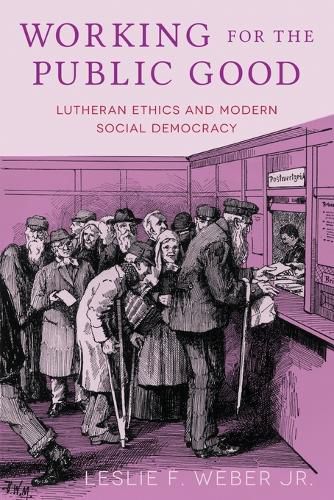Readings Newsletter
Become a Readings Member to make your shopping experience even easier.
Sign in or sign up for free!
You’re not far away from qualifying for FREE standard shipping within Australia
You’ve qualified for FREE standard shipping within Australia
The cart is loading…






Weber demonstrates conclusively that despite historical critiques of quietism, European Lutherans developed a social ethics in the centuries following the Reformation that brought about fundamental systemic and structural changes in social services, law, education, health care, the formation of states and nations, and public morality. Those changes eventually led to the development of the welfare state. In so doing, Weber challenges interpretations by scholars, such as the German Lutheran theologian Ernst Troeltsch, who argued that Lutheran theology created a church operating at a remove from society's pressing questions.
Weber's comprehensive coverage of northern European society from the Reformation era through the nineteenth century utilizes the tools of sociology, theology, history, and ethics to demonstrate that Lutheran ethical theory, a Lutheran understanding of the social order, and Lutheran social reforms lie at the heart of modern European social institutions. Grounded in a Lutheran ethic of faith active in love for the neighbor, Lutheran ethics transformed the household and polity, developed government care for the poor, protected public health, and promoted social welfare within a new moral and legal order that continues to underpin contemporary social democracy across northern Europe.
$9.00 standard shipping within Australia
FREE standard shipping within Australia for orders over $100.00
Express & International shipping calculated at checkout
Stock availability can be subject to change without notice. We recommend calling the shop or contacting our online team to check availability of low stock items. Please see our Shopping Online page for more details.
Weber demonstrates conclusively that despite historical critiques of quietism, European Lutherans developed a social ethics in the centuries following the Reformation that brought about fundamental systemic and structural changes in social services, law, education, health care, the formation of states and nations, and public morality. Those changes eventually led to the development of the welfare state. In so doing, Weber challenges interpretations by scholars, such as the German Lutheran theologian Ernst Troeltsch, who argued that Lutheran theology created a church operating at a remove from society's pressing questions.
Weber's comprehensive coverage of northern European society from the Reformation era through the nineteenth century utilizes the tools of sociology, theology, history, and ethics to demonstrate that Lutheran ethical theory, a Lutheran understanding of the social order, and Lutheran social reforms lie at the heart of modern European social institutions. Grounded in a Lutheran ethic of faith active in love for the neighbor, Lutheran ethics transformed the household and polity, developed government care for the poor, protected public health, and promoted social welfare within a new moral and legal order that continues to underpin contemporary social democracy across northern Europe.